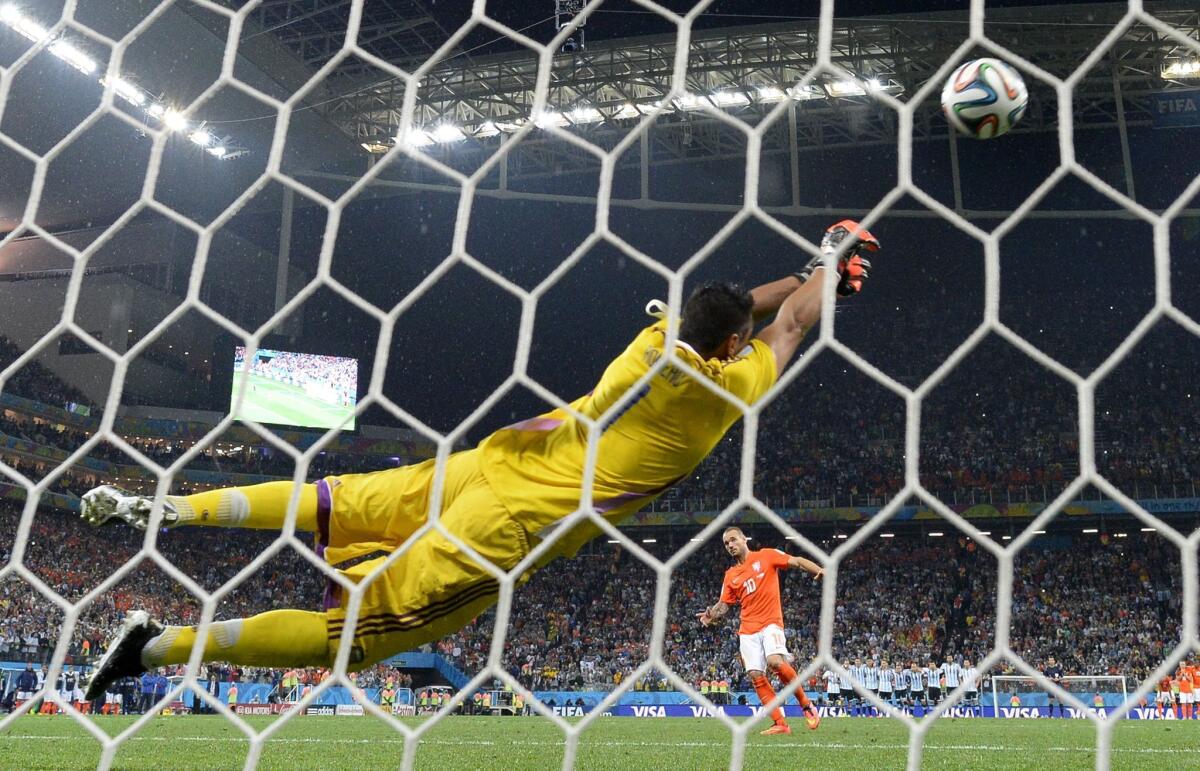Penalty-kick shootouts: There’s got to be a better way, right?

- Share via
In the World Cup glossary that exists in the minds of attending media members, there is an entry that can be found under the letter D.
Dreaded penalty-kick shootout.
The rest of us might refer to the end-game tiebreaker without the d-word. (Then again, we might use a stronger d-word.) Those who chronicle or comment on the tournament cannot resist front-loading the phrase with the adjective. They consider the solution an abomination, the equivalent of basketball dispensing with a fourth overtime and determining the outcome with a free-throw shooting contest.
Yet the Argentina-Netherlands semifinal fiasco validated the worth of a shootout in some circumstances. The hapless teams might have played until doomsday without scoring. The penalty kicks brought it to a merciful, though still dramatic, denouement.
That’s not to say that the format shouldn’t be tweaked. FIFA could adopt the bright idea popularized by the North American Soccer League in its heyday. The shooter would start from 35 yards out and, dribbling toward the goal, be afforded up to five seconds to shoot. The keeper could move toward the player, thus cutting down on angles. This option shifts some of the difficulty from the keeper to the shooter, thus heightening suspense.
Of course, soccer’s governing body could lower the odds of a shootout by converting the overtime period to sudden death, ending it with the first -- or golden -- goal.
But FIFA is like a super-sized cruise ship. The simple act of turning it around is an ordeal. Change happens at a glacial pace. Tradition often trumps logic.
Other floated fixes to eliminate the shootout are intriguing but might be deemed too radical by the soccer mainstream. Some, including FIFA chief Sepp Blatter (for the championship match only), have proposed reducing the number of players on each side in OT, which could open the field for scoring chances.
If the penalty kicks series, which was implemented for the 1978 World Cup, is retained, the order of the shooting teams should be decided by something other than the whims of a coin toss. According to a study, the team that goes first wins 61% of games at all levels, presumably because a successful opening try ratchets up pressure on the other side.
A Sunday shootout, if it comes to that, might bring an unsatisfactory conclusion to Germany vs. Argentina for the title. But, without it, an unbreakable tie that drags on forever turns into slo-motion action and increases players’ exposure to injury or dehydration. That would be something to dread.






